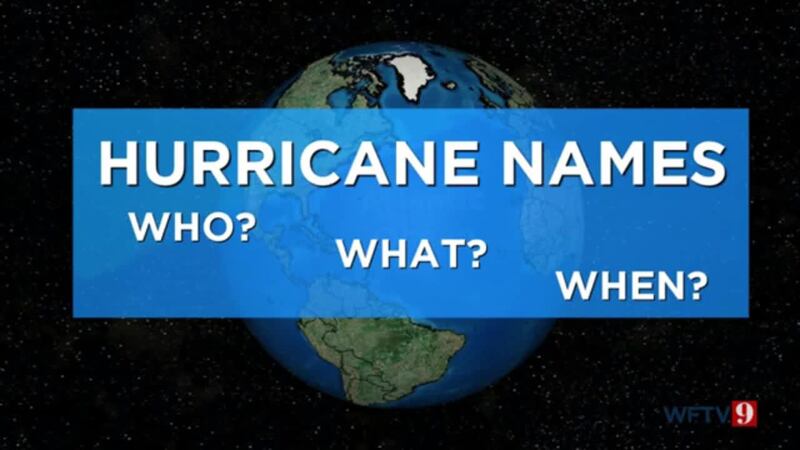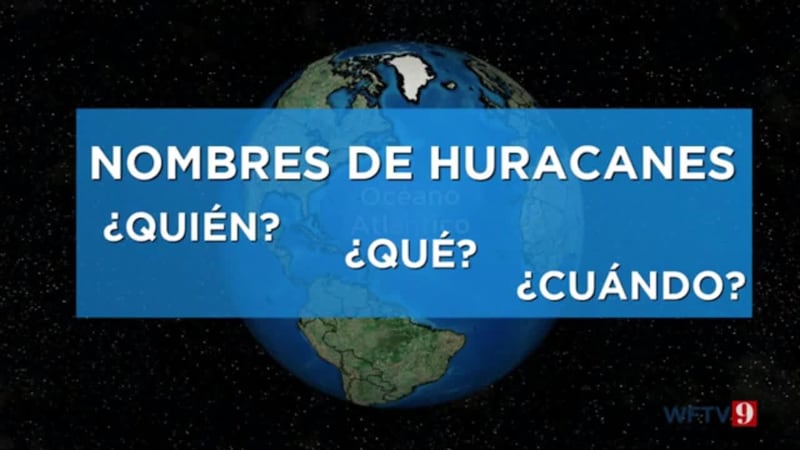ORLANDO, Fla. — 5p.m. update
Tropical depression 3 formed over the southwestern Gulf of Mexico. It has maximum sustained winds of 30 mph. Its strength will fluctuate this week as it is caught in the Central American Gyre and stay over the Bay of Campeche area for most of this week.
The system could then turn northward and enter the central Gulf of Mexico strengthening further. The next name on the list is Cristobal.
Tropical Depression #Three Advisory 1: Tropical Depression Forms in the Bay of Campeche. Expected to Strengthen and Bring Heavy Rainfall to Portions Of Mexico. https://t.co/VqHn0u1vgc
— National Hurricane Center (@NHC_Atlantic) June 1, 2020
Earlier version
The first named storm out of the Eastern Pacific, Tropical Storm Amanda, developed near Guatemala on Sunday.
On Monday morning, the disturbance was located over the Yucatan Peninsula. It is slowly moving west-northwest and it could move over the Bay of Campeche Monday evening. Once over the warm waters of the southwestern Gulf of Mexico, the storm could redevelop into a tropical storm or tropical depression. If the storm redevelops there it would become the Atlantic Basin’s third named storm, Cristobal.
There is a high chance of this system redeveloping by Wednesday.
Although Amanda has dissipated, its remnants continue to bring heavy rains over El Salvador, Belize, Guatemala, and southern Mexico. Some parts could see up to 20 inches of rain brought by the storm. Flash floods and mudslides have occurred this past weekend and they are expected to continue for parts of the region, especially across high terrain.
Get your supplied ready: ’Prepare now’: Hurricane preparation tax-free holiday underway
THE FORECASTS:
The forecast calls for the system to stay over the Gulf of Mexico in a loop form, during this week. If the system stays over water, it could “unloop” again, finally break free of the Central America Gyre and move northward toward the southern Gulf U.S. states by this weekend or the beginning of next week. We will continue to monitor.
Read: Forecasters highly confident about an active 2020 Hurricane Season
Forecast for today in Central Florida: Isolated storms possible to begin workweek; cold front arrives today
Curious tidbit about this area:
This system is caught in an area determined to be the Central American Gyre (CAG). The CAG is a broad area of cyclonic circulations in the lowest layer of the atmosphere. Occurring near Central America, they are similar to broad monsoonal low-pressure systems in other oceanic basins. The Central American Gyres can form anywhere from Mexico to Central American to the Caribbean.
Nota en español: Temporada de Huracanes 2020: Pronosticadores altamente confiados en una temporada activa
DO YOU KNOW? What do they mean? Disturbance, depressions, tropical, subtropical storms, hurricanes
As the system is caught in this big circulation it continues to spin and whirl, meandering around the same area. Also, because it comes charged with lots of tropical humidity. It produces torrential rains in the areas it travels over.
The Central American Gyre usually forms once or twice per year. Usually, it forms when the Pacific and Atlantic trade winds shift, during June or September/October, which is also when the intertropical convergence zone (ITCZ) migrates northward.
Find out: Why is Florida a good place to launch rockets from?
Interesting Facts about the Eastern Pacific Hurricane Season:
- The Eastern Pacific season starts on May 15, due to warmer waters of this area earlier in the season.
- The Eastern Pacific season has a different name list than the Atlantic season.
- There are also Hurricane Season Forecasts made for the Pacific Ocean.
- Most of the storms remain over water, with a few storms striking Mexico and fewer storms striking Hawaii.
- The National Hurricane Center in Miami also monitors storms in this region, providing the same products and advisories offered for the Atlantic.
Notable earlier trend in the formation of "C" storms in the Atlantic Ocean since the 1960s (Satellite Era). If #Cristobal develops prior to June 5, it will overtake 2016's Colin as the earliest third named storm on record in the Atlantic Ocean. pic.twitter.com/gWGI4WoZ0s
— Steve Bowen (@SteveBowenWx) June 1, 2020
>> CLICK HERE FOR LIVE DOPPLER 9 RADAR <<
DOWNLOAD OUR FREE WFTV WEATHER APP TO RECEIVE ALERTS
Entérese del pronóstico del tiempo, en español, por nuestra meteoróloga Irene Sans:
Follow our Severe Weather team on Twitter for live updates:
- Chief meteorologist Tom Terry
- Brian Shields
- Irene Sans
- Kassandra Crimi
- George Waldenberger
- Rusty McCranie
© 2020 Cox Media Group







